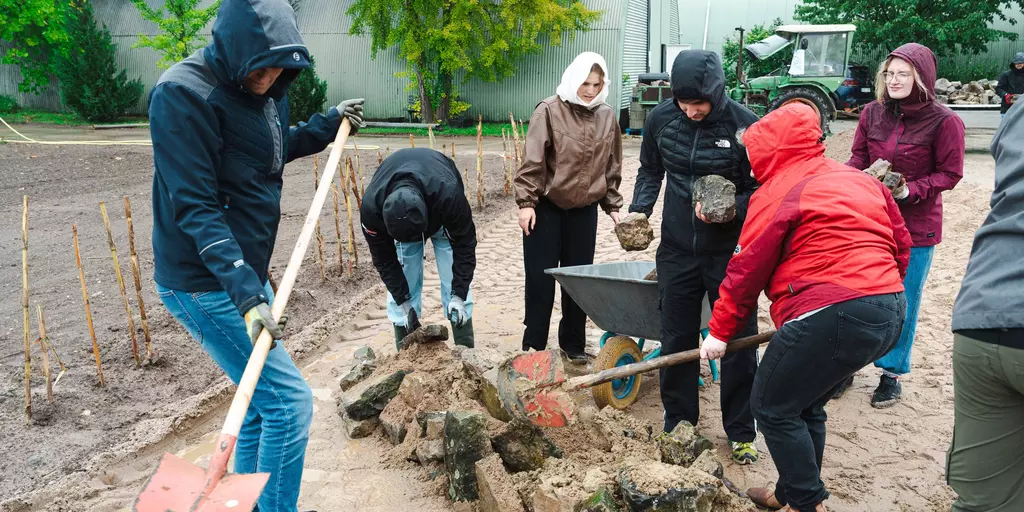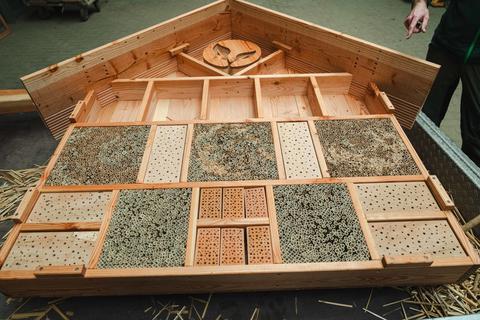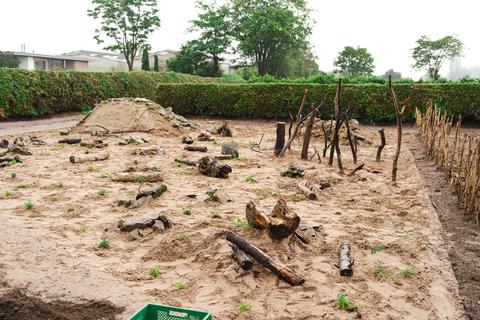2nd Focus Day on sustainability for Schwabe trainees
2025-10-17
Trainees actively helping shape the future: 2nd Focus Day on sustainability
For the second time, we held a sustainability focus day at
In the morning, there were different presentations which provided inspiration about our comprehensive sustainability roadmap as well as exciting information about the regional biodiversity among insects which is especially intense at Terra Medica. In the afternoon, the group headed outside despite the rainy weather: armed with rubber boots and raincoats, the team of dedicated trainees brought life to two new projects. They prepared an insect hotel and created a sand habitat for wild bees. This creates desperately needed areas for insects to burrow amidst the chamomile, lavender and other plants.
We also share some impressions on

Rooms available at the insect hotel
With its dimensions of 1.80 x 1.50 meters, the insect hotel can hardly be overlooked. This new nesting aid was fitted with bamboo and reeds which insects of different kinds can use to nest; the trainees worked by hand to cut the reeds down to the right size and place them in the wooden frame.
The primary “occupants” will be wild bees, but earwigs and Darwin wasps can also hibernate there for the winter. In January, a group of Schwabe volunteers will roll up their sleeves and make the hotel ready for spring.

At home in the sand
A special habitat of sand sometimes referred to as a “sandarium” is a place where burrowing wild bees can safely nest. The trainees and dual-track students spent several hours digging (despite the steady drizzle) and planting plants. To create other areas for additional species to burrow, they also layered rocks for a dry-stone wall and a retaining wall and set up old logs to create a dead-wood habitat. The plants they put down will serve as food for the smaller bees which cannot fly as far. The trainees planted species such as thyme, prunella, brown knapweed, restharrow and St. John’s wort – native and drought-resistant plants.